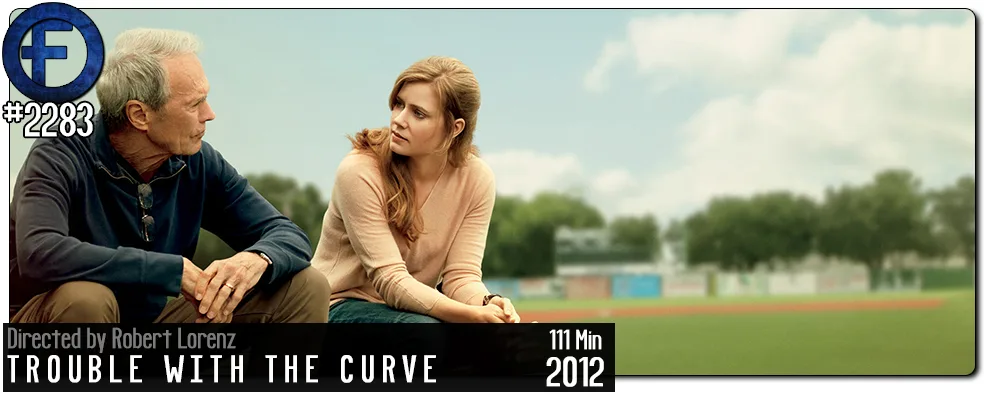Movie Review – Trouble With The Curve
Principal Cast : Clint Eastwood, Amy Adams, Justin Timberlake, Matthew Lillard, Jack Gilpin, John Goodman, Robert Patrick, Scott Eastwood, Ed Lauter, Chelcie Ross, Matt Bush, George Wyner, Bob Gunton, Tom Dreesen, James Patrick, Joe Massingill, Jay Galloway.
Synopsis: A daughter tries to remedy her dysfunctional relationship with her ailing father, a decorated baseball scout, by helping him in a recruiting trip which could be his last.
********
In the vast landscape of cinema, certain films possess the unique ability to seamlessly blend storytelling, performances, and cultural nuances into a tapestry of entertainment. One such gem that graced the silver screen in 2012 is the profoundly moving Trouble with the Curve, a heartfelt exploration into the world of baseball, relationships, and the inexorable march of time. Directed by Robert Lorenz and starring the legendary Clint Eastwood, Amy Adams, and Justin Timberlake, this film not only captures the essence of America’s favorite pastime but also delves into the complexities of familial bonds and the inevitability of aging.

Trouble with the Curve unfolds as a poignant narrative centering around Gus Lobel (Clint Eastwood), a seasoned baseball scout whose eyes, once sharp and discerning, now face the challenges posed by advancing age. As he embarks on a scouting trip to assess a hot prospect, his daughter Mickey Lobel (Amy Adams) decides to join him, seeking to bridge the emotional gap that has widened over the years. Enter Johnny Flanagan (Justin Timberlake), a former pitcher turned scout who becomes entangled in the Lobels’ journey, adding an extra layer of emotional depth.
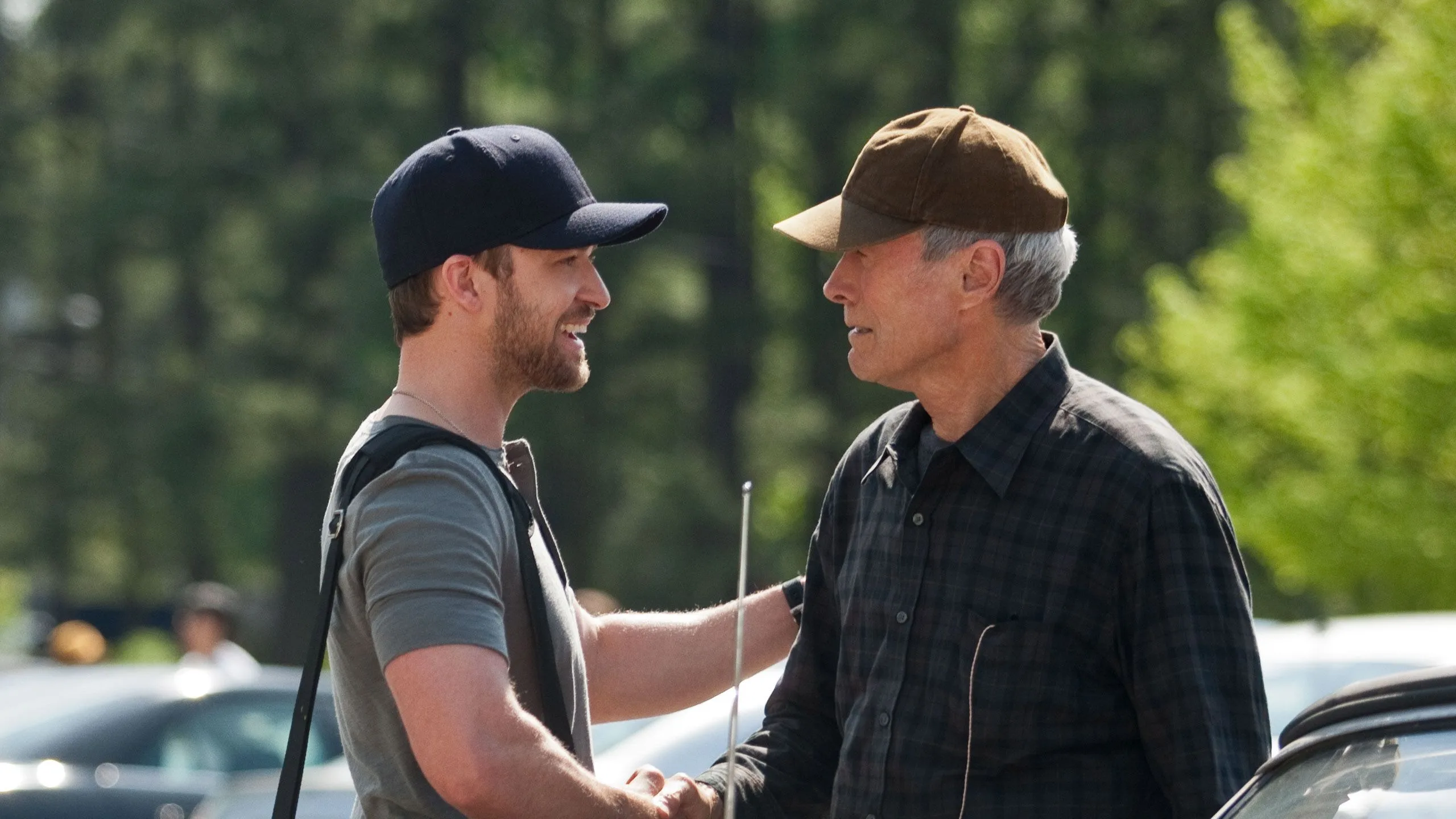
The film’s journey unfolds against the backdrop of picturesque baseball fields, each frame soaked in the golden hues of nostalgia and the green of a sport that transcends generations. Trouble with the Curve delves into the cultural significance of “America’s Pastime”, baseball, portraying it not merely as a sport but as a reflection of life’s ebbs and flows. The film carefully weaves the fabric of baseball into the characters’ lives, using it as a metaphor for the inevitability of change and the passage of time. Baseball serves as a powerful canvas that mirrors the ebullient highs and heart-wrenching lows of the characters. The crack of the bat and the roar of the crowd become metaphors for life’s victories and defeats, creating a resonant symphony that underscores the narrative. The film’s exploration of baseball’s cultural impact is not merely surface-level; it digs deep into the psyche of the characters. Gus Lobel’s struggle to adapt to the changing landscape of scouting mirrors the broader societal shifts, where tradition grapples with modernity. This nuanced approach elevates Trouble with the Curve beyond a sports drama, transforming it into a poignant exploration of the intersection between personal growth and the evolving tapestry of American culture.
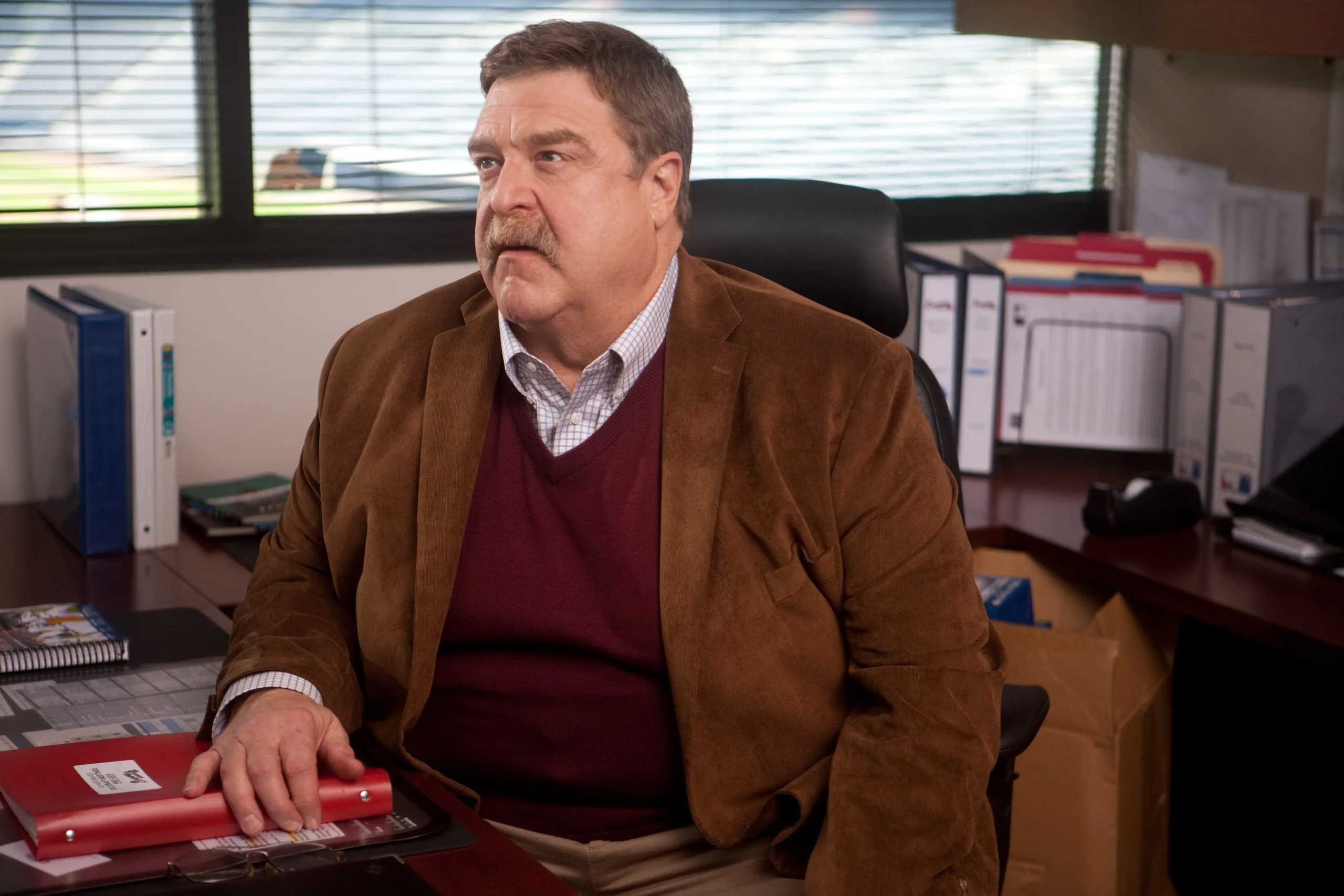
The success of Trouble with the Curve hinges significantly on the impeccable performances delivered by the cast. Clint Eastwood, in his trademark stoic style, brings a vulnerability to Gus Lobel that is both endearing and relatable. His portrayal is a testament to the enduring prowess of a seasoned actor, skilfully infusing each scene with a profound sense of authenticity. Amy Adams, as Mickey Lobel, shines with a radiant intensity. Her portrayal of a daughter yearning to connect with her father adds a layer of emotional resonance to the narrative. The chemistry between Eastwood and Adams is palpable, creating a compelling on-screen dynamic that forms the emotional core of the film. Justin Timberlake, in his role as Johnny Flanagan, delivers a charismatic performance that complements the gravitas of Eastwood and the emotional depth of Adams. His character provides a fresh perspective on the intricacies of the scouting world while serving as a charming bridge between the generations.
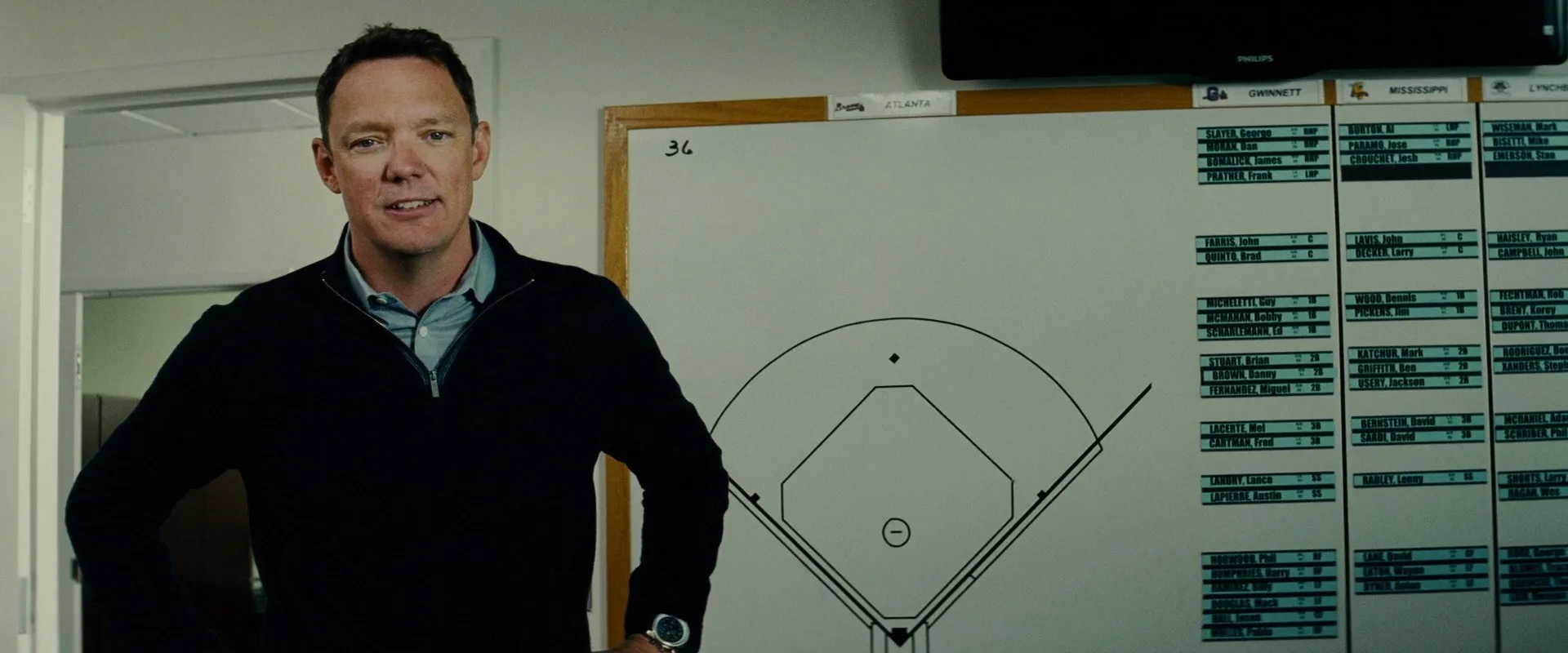
Penned by Randy Brown, the screenplay of Trouble with the Curve is a work of art that seamlessly blends humour, heart, and nostalgia. The dialogue crackles with authenticity, capturing the essence of familial relationships and the idiosyncrasies of the baseball world. The script navigates emotional highs and lows with finesse, ensuring that each character’s journey feels genuine and compelling. The cinematography, helmed by Tom Stern, is a visual feast that captures the beauty of baseball and the emotional landscape of the characters. From the sweeping shots of baseball fields bathed in sunlight to the intimate moments shared between father and daughter, every frame is a testament to Stern’s keen eye for storytelling through visuals.
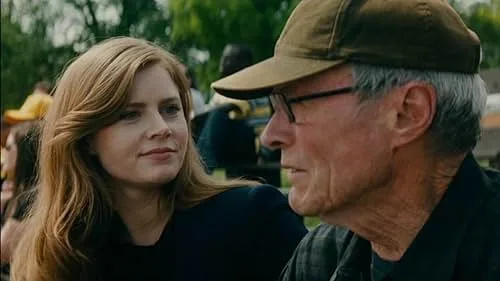
A recurring theme in Clint Eastwood’s later career is his adept incorporation of aging into the characters he portrays. Trouble with the Curve is no exception, as Eastwood’s Gus Lobel becomes a vessel for the exploration of the challenges and triumphs that come with growing older. Gus Lobel’s struggle with diminishing eyesight becomes a metaphor for the inevitability of aging and the resilience required to navigate life’s curveballs. Eastwood, with his weathered visage and commanding presence, imbues Gus with a quiet strength that transcends the physical limitations imposed by time. It’s a performance that resonates with authenticity, reminding audiences of the beauty found in embracing the inevitability of change.
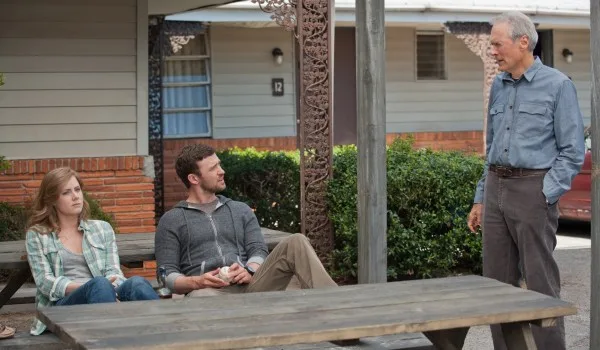
Trouble with the Curve stands as a wonderful film that transcends the boundaries of sports drama. Its exploration of baseball, familial relationships, and the inexorable march of time is a testament to the power of storytelling when executed with finesse. The performances, screenplay, and cinematography coalesce into an embrace of emotion, and the somewhat saccharine happy ending is sure to please most. Clint Eastwood’s continued exploration of aging adds a layer of poignancy, elevating the film into a timeless exploration of life’s complexities. So, grab your mitt and batter up: let Trouble with the Curve take you on a journey that is as timeless as the crack of a well-hit baseball on a warm summer day.

